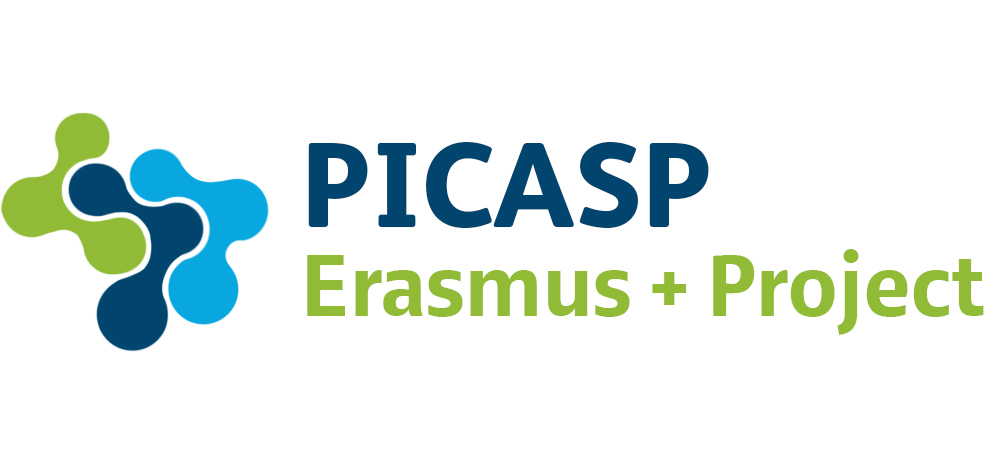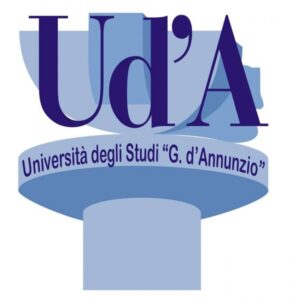
Есенов университеті ERASMUS+ бағдарламасы аясында «Унивеситеттер мен кәсіпорындар ынтымақтастығы негізінде Каспий аймағын дамытуға арналған практикалық бизнес бойынша пилоттық курстар» 617540-ЕРР-1-2020-1-ІТ-EPPKA2-CBHE-JP PICASP жобасын іске асыруда.
Жобаны іске асыру мерзімі: 2021-2023 ж.ж..
Yessenov University 2023 жылы 29 наурызда ERASMUS+ бағдарламасы аясында «Университеттер мен кәсіпорындар ынтымақтастығы негізінде Каспий аймағын дамытуға арналған практикалық бизнес бойынша пилоттық курстар» жобасы аясында онлайн кездесу студенттер мен жұмыс тобының қатысуымен өткізілді.
Онлайн кездесуде Италияның бизнесті басқару бойынша профессоры Massimo Bianchi, Халықаралық бизнес университеті (UIB) президентінің кеңесшісі, экономика ғылымдарының кандидаты Меруерт Наренова, жобаның университет тарапынан әкімшісі, зерттеу және даму женіндегі вице-президент А.А. Сейдалиев, менеджер, зерттеуші С. Сырлыбекқызы, халықаралық қатынастар және туризм кафедрасының менгерушісі м.а. Э.Т. Жангожаева, білім беру ресурстарды дамыту орталығынын жетекші маманы техникалық маман А.А. Жилкишбаев, зерттеушілер: халықаралық қатынастар және туризм кафедрасының профессор ассистенті Ж.С. Низаматдинова, халықаралық қатынастар және туризм кафедрасының профессор асистенті Ж.А. Айтбай, халықаралық қатынастар және туризм кафедрасының оқытушысы А.С. Айдарбаева қатысты.
2 курс студенті Сунгатова Азиза «Қонақжайлылықтағы бизнес жоспарлау» тақырыбында, 4 курс студенті Расулова Нұрайым «Көрпе» тақырыбында баяндама жасады.
ERASMUS+ бағдарламасы аясында «Университеттер мен кәсіпорындар ынтымақтастығы негізінде Каспий аймағын дамытуға арналған практикалық бизнес бойынша пилоттық курстар» жобасымен университет жоба орындаушыларымен бірге 15-17 қыркүйекте Серинарда, Форлида да семинар мен курстар өтті.
ERASMUS+ бағдарламасы аясында «Университеттер мен кәсіпорындар ынтымақтастығы негізінде Каспий аймағын дамытуға арналған практикалық бизнес бойынша пилоттық курстар» жобасымен 2022 ж. 12-17 қыркүйек аралығында Италияда жоба қатысушыларының кездесуі және Chieti University мен ICA (Istituto Centrale per l’Archeologia) (орталық археология институты) Италия Мәдениет министрлігімен бірлесіп мәдени-білім беру турын ұйымдастырды. Ш. Есенов атындағы Каспий технология және инжиниринг университетінен жоба зерттеушілері А.Г. Гусманова, Э.Т. Жанғожаева және Ж. Низаматдинова жұмыс сапары барысында дөңгелек үстелдер мен семинарларға қатысты.
12 қыркүйекте Рим қаласында Италияның Мәдениет министрлігімен бірлесіп “Итальяндық мәдени мұраны қорғау және оның құндылығын арттыру” тақырыбында дөңгелек үстел өтті.
2022 ж. 14 қыркүйекте Chieti университетінде “Мәдени туризм мен әкімшілік мәселелерді жүзеге асыру үшін курстар, ақпарат тарату және тілдер” тақырыбында дөңгелек үстел ұйымдастырылды.
ERASMUS+ бағдарламасы аясында «Университеттер мен кәсіпорындар ынтымақтастығы негізінде Каспий аймағын дамытуға арналған практикалық бизнес бойынша пилоттық курстар» жобасымен 2022 ж. 14 қыркүйекте Chieti университетінде “Мәдени туризм мен әкімшілік мәселелерді жүзеге асыру үшін курстар, ақпарат тарату және тілдер” тақырыбында дөңгелек үстел ұйымдастырылды.
2022 жылғы 21 маусымда ERASMUS+ бағдарламасы аясында «Университеттер мен кәсіпорындар ынтымақтастығы негізінде Каспий аймағын дамытуға арналған практикалық бизнес бойынша пилоттық курстар» жобасы бойынша еліміздегі үйлестіруші UIB университеті өкілдері профессор Меруерт Наренова мен Ғалия Сихимбаева Ш. Есенова атындағы Каспий технологиялар және инжиниринг университетіне келді. Университетте дөңгелек үстел ұйымдастырылды, UIB университетінің профессоры М. Наренова “PICASP практикалық тәсілін әзірлеу” тақырыбында баяндады.
Сондай-ақ, 2022 жылғы 22 сәуірде Ш. Есенов атындағы Каспий технологиялар және инжиниринг университетіне Италиядан келген профессор Massimo Bianchi мырза мен Gabriella Paganelli ханым келді. Дөңгелек үстел өткізілді, сондай-ақ профессор Massimo Bianchi: «The Start- up of Courses in PE»”, сондай-ақ профессор Gabriella Paganelli «Decisions to be made before starting a partnership in Practice Enterprise» тақырыбында баяндама оқыды. Қонақтар үшін кампус туры және Маңғыстаудың көрікті жерлеріне, мысалы, Бозжыра шатқалына және Бекет-Ата жерасты мешітіне экскурсия ұйымдастырылды.
ERASMUS+ бағдарламасы аясында «Университеттер мен кәсіпорындар ынтымақтастығы негізінде Каспий аймағын дамытуға арналған практикалық бизнес бойынша пилоттық курстар» жобасымен 2021 ж. 12 мамырында жұмыс берушілермен дөңгелек үстел өтті. Дөңгелек үстелге “Атамекен” Кәсіпкерлер Палатасы директорының Маңғыстау облысы бойынша орынбасары Айтжанова Аққу, Ақтаудағы Rixos Waterworld қонақ үйінің персоналды дамыту жөніндегі менеджері Мұратова Әсем, Маңғыстау облысының туризм басқармасы басшысының орынбасары Омарова Гүлсім қатысты.

Жетекші серіктес: Габриэль Д‘Аннунцио атындағы ведомстволық партия Университеті (Италия)
Сомасы: 882 359,00 евро
Шағын және орта бизнес кәсіпкерлігі мен менеджменті жөнінде оқытудың инновациялық әдістерін ЖОО-ларда әзірлеу арқылы университеттер мен кәсіпорындар арасындағы ынтымақтастықты нығайту.